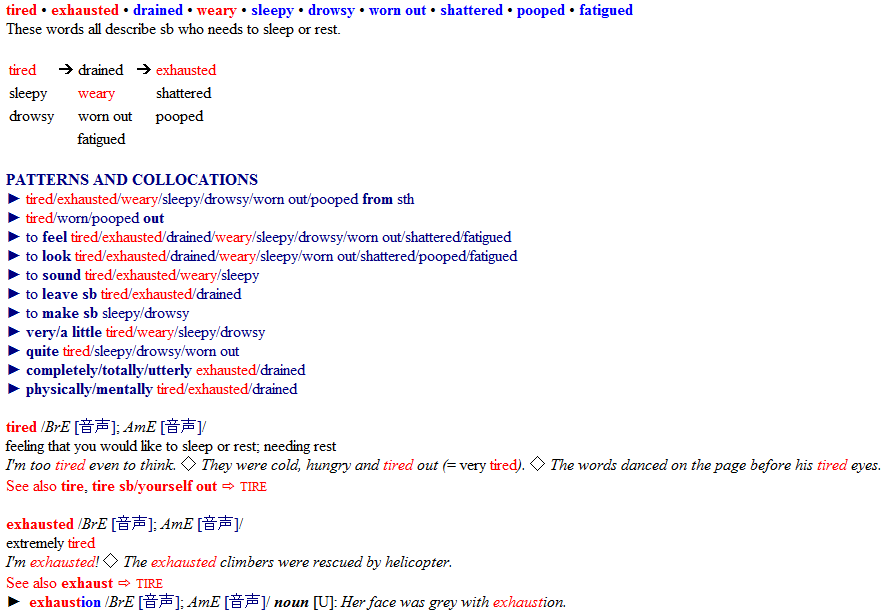2021-05-23 Sun
■ #4409. 色白で美しく公正な白雪姫 --- fair の語感 [khelf_hel_intro_2021][adjective][synonym][synonymy][semantics][semantic_change][lexical_stratification][bnc][collocation][etymology]
「英語史導入企画2021」より今日紹介するコンテンツは,昨日学部生より公表された「この世で一番「美しい」のは誰?」です.ディズニー映画 Snow White and the Seven Dwarfs (『白雪姫』)の台詞 "Magic mirror on the wall, who is the fairest one of all?" で用いられている形容詞 fair の意味変化に焦点を当てた英語史導入コンテンツとなっています.
「美しい」といえばまず beautiful が思い浮かびますが,なぜ問題の台詞では fair なのでしょうか.まず,コンテンツでも解説されている通り fair には「色白の」という語義もありますので,Snow White とは相性のよい縁語といえます.さらに,beautiful が容姿の美しさを形容するのに特化している感があるのに対し,fair には「公正な,公平な」の語義を含め道徳的な含意があります (cf. fair trading, fair share, fair play) .白雪姫を形容するのにぴったりというわけです.
fair は古英語期より用いられてきた英語本来語で,古く清く温かい情感豊かな響きをもちます.一方,beautiful は,14世紀に古フランス語の名詞 beute を借用した後に,15世紀に英語側で本来語接尾辞 -ful を付加して作った借用語です.フランス借用語(正確には「半」フランス借用語)は相対的にいって中立的で無色透明の響きをもつことが多いのですが,beautiful についていえば確かに fair と比べて道徳的・精神的な深みは感じられません.(ラテン借用語 attractive と合わせた fair -- beautiful -- attractive の3語1組 (triset) と各々の使用域 (register) については,「#334. 英語語彙の三層構造」 ([2010-03-27-1]) をご覧ください.)
fair と beautiful のような類義語の意味・用法上の違いについて詳しく知りたい場合には,辞書やコーパスの例文をじっくりと眺め,どのような語と共起 (collocation) しているかを観察することをお薦めします.試しに約1億語からなるイギリス英語コーパス BNCweb で両語の共起表現を調べてみました.ここでは人物と容姿を形容する共起語に限って紹介しますが,fair とタッグを組みやすいのは hair と lady です.一方,beautiful とタッグを組む語としては woman, girl, young, hair, face, eyes, looks などが挙がってきます.気品を感じさせる fair lady に対して,あくまで容姿の良さを表わすことに特化した beautiful woman/girl という対立構造が浮かび上がってきます.白雪姫にはやはり fair がふさわしいのでしょうね.
fair に見られる白さと公正さの結びつきは,candid という形容詞にも見られます.candid は第一に「率直な」を意味しますが,やや古風ながらも「公平な」の語義がありますし,古くは「白い」の語義もありました.もともとの語源はラテン語 candidus で,まさに「白い」を意味しました.「白熱して輝いている」が原義で,candle (ロウソク)とも語根を共有しています.また,candidate (候補者)は,ローマで公職候補者が白いトーガを着る習わしだったことに由来します.ちなみに日本語でも「潔白」「告白」「シロ(=無罪)」などに白さと公正さの関係が垣間見えますね.
2021-05-09 Sun
■ #4395. 英語の類義語について調べたいと思ったら [khelf_hel_intro_2021][thesaurus][dictionary][lexicology][htoed][semantics][synonym][synonymy][corpus][methodology]
英語を学ぶ上で,類義語 (synonym) というのは厄介です.訳語としては同じなのに,実際にはニュアンスの違いがあるというのだから手間がかかります.一般に言語において完全な同義語はないとされますが,意味が微妙に異なる類義語というのは,思っている以上に多く存在します.
日本語で考えてみれば,類義語の多さにはすぐに気づくでしょう.「疲れる」の類義語を挙げてみましょう.「くたびれる」「くたばる」「へたばる」「へばる」「グロッキー」「バテる」「疲労する」「困憊する」「へとへとになる」「ふらふらになる」「疲れ切る」など,それぞれ独特のコノテーションがありますね.
英語で「疲れた」といえば,第一に tired が思い浮かびますが,他に exhausted, drained, weary, worn out, shattered, pooped, fatigued などもあります.学習するには厄介ですが,各々独自のコノテーションをもっており存在意義があるようです.昨日の「英語史導入企画2021」のためのコンテンツは,学部生による「「疲れた」って表現、多すぎない?」です.こちらもご覧ください.
このような類義語に関心をもったら,まず当たるべきは学習者用の英英辞典です.例えば Longman Dictionary of Contemporary English (= LDOCE) などでは,たいてい主要な見出し語(例えば tired)のもとに,THESAURUS という類義語コーナーが設けられており,各類義語の使い分けが簡潔に記されています.
thesaurus というのは,ずばり類義語辞典のこと.とすれば,類義語辞典そのものに当たるのが早いといえば早いですね.例えば,Oxford Learner's Thesaurus によれば,各類義語のニュアンス,用例,コロケーションが細かく解説されています.以下のように,どんどん記述が続いていきます.かゆいところに手が届く辞典ですね.

さらに詳しく調べたいのであれば,各類義語が用いられている「現場」からの事例を多数集めて分析することが必要になります.こうなるとコーパスの利用が有用です.まずは,イギリス英語とアメリカ英語の各々について,BNCweb と COCA というコーパスに当たってみるのがお薦めです.
「英語史導入企画2021」の開催中ということで,かなり高度な研究ツールながらも歴史的類義語辞典なるもの紹介しておきましょう.Historical Thesaurus of the Oxford English Dictionary (= HTOED) です.詳細は「#3159. HTOED」 ([2017-12-20-1]) をどうぞ.
2018-08-10 Fri
■ #3392. 同義語と類義語 [synonymy][semantics][lexicology][thesaurus]
標題の2つの用語は言語学ではいずれもよく使われるが,はたして同じものなのか,それとも異なるのか.語の意味にまつわる話題であり,案外難しい問題である.実用上は,厳密に定義を与えないままに,両用語を「適当に、常識的に」使用し(分け)ているものと思われる.実際,英語の synonym は「同義語」にも「類義語」にも相当するのだ.
一般的には,語義が完全に一致する「完全同義語」 (absolute synonym) のペアは(ほとんど)ないと言われる (cf. 「#1498. taboo が言語学的な話題となる理由 (3)」 ([2013-06-03-1])) .ということは,synonym という用語が有意味となるためには,「完全同義語」ではなく「不完全同義語」を,すなわち「類義語」ほどを指していることが望ましい.一方,英語には near-synonym あるいはより専門的に plesionym (< Gr. plēsios (近接した) + onoma (名前)) という用語もある.ここから,synonym, near-synonym, plesionym という用語は,それこそ互いに synonymous な関係にあると解釈できそうである.語義の似ている度合いというのは数値化できるわけでもなく,当然ながら微妙な問題になることはやむを得ない.
Cruse (176--77) の意味論の用語辞典の説明を覗いてみよう.
synonymy, synonyms A word is said to be a synonym of another word in the same language if one or more of its senses bears a sufficiently close similarity to one or more of the senses of the other word. It should be noted that complete identity of meaning (absolute synonymy) is very rarely, if ever, encountered. Words would be absolute synonyms if there were no contexts in which substituting one for the other had any semantic effect. However, given that a basic function of words is to be semantically distinctive, it is not surprising that such identical pairs are rare. That being so, the problem of characterising synonymy is one of specifying what kind and degree of semantic difference is permitted. One possibility is to define synonymy as 'propositional synonymy': two words A and B are synonyms if substituting either one for the other in an utterance has no effect on the propositional meaning (i.e. truth conditions) of the utterance. This is the case with, for instance, begin: commence and false: untrue (on the relevant readings):
The concert began/commenced with Beethoven's Egmont Overture.
What he told me was false/untrue.
By this definition, synonyms will typically differ in respect of non-propositional aspects of meaning, such as expressive meaning and evoked meaning. Thus, begin and commence differ in register; the difference between false and untrue (indicating lack of veracity) is rather subtle, but the former is more condemnatory, perhaps because of a stronger presumption of deliberateness. However, while this is a convenient and easily applied way of defining synonymy, it does not capture the way the notion is used by, for instance, lexicographers, in the compilation of dictionaries of synonyms or in the assembly of groups of words for information on 'synonym discrimination'. Certainly, some of the words in such lists are propositional synonyms, but others are not, and for these we need some such notion as 'near-synonymy' ('plesionymy'). This is not easy to define, but roughly speaking, near-synonyms must share the same core meaning and must not have the primary function of contrasting with one another in their most typical contexts. (For instance, collie and spaniel share much of their meaning, but they contrast in their most typical contexts.) Examples of near-synonyms are: murder: execute: assassinate; withhold: detain; joyful: cheerful; heighten: enhance; injure: damage; idle: inert: passive.
synonyms を分析するにあたって,命題的意味 (propositional meaning) と非命題的意味 (non-propositional meaning) を区別するという方法は確かにわかりやすい.これは概念的意味 (conceptual meaning) と非概念的意味 (non-conceptual meaning) の区別にも近いだろう(「#1931. 非概念的意味」 ([2014-08-10-1]) を参照).命題的意味や概念的意味はイコールだが,非命題的意味や非概念的意味が何かしら異なっている場合に,その2語を synonyms と呼ぼう,というわけだ.
しかし,類義語辞典などに挙げられている類義語リストを構成する各単語は,たいていさらに緩い意味で「似ている」単語群にすぎない.最も中心的な意味のみを共有しており,かつ互いに異なる周辺的な意味はあくまで2次的なものとして,当面はうっちゃっておけるほどの関係であれば (near-)synonyms と呼べるということになろうか.ややこしい問題ではある.
・ Cruse, Alan. A Glossary of Semantics and Pragmatics. Edinburgh: Edinburgh UP, 2006.
Powered by WinChalow1.0rc4 based on chalow